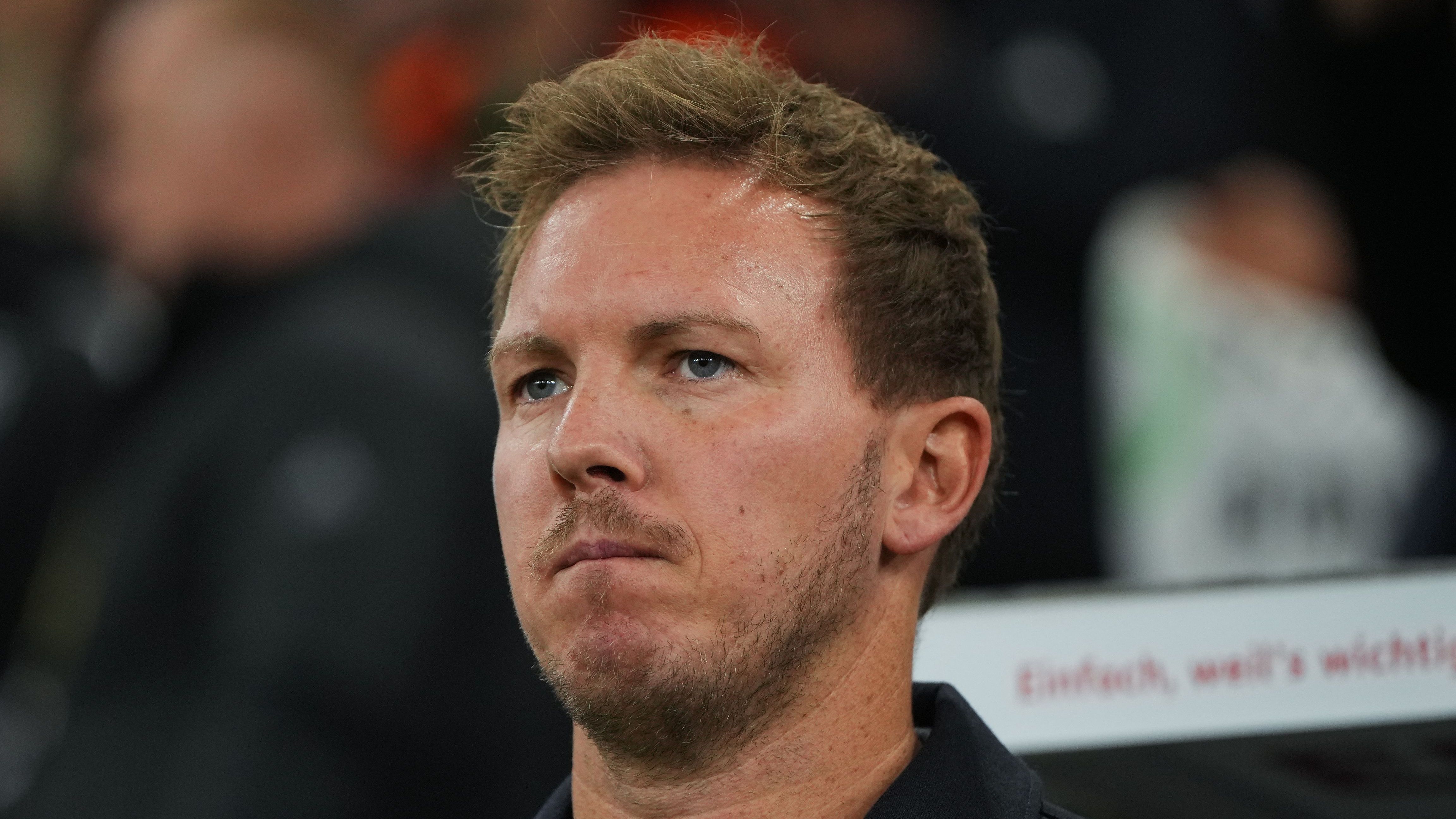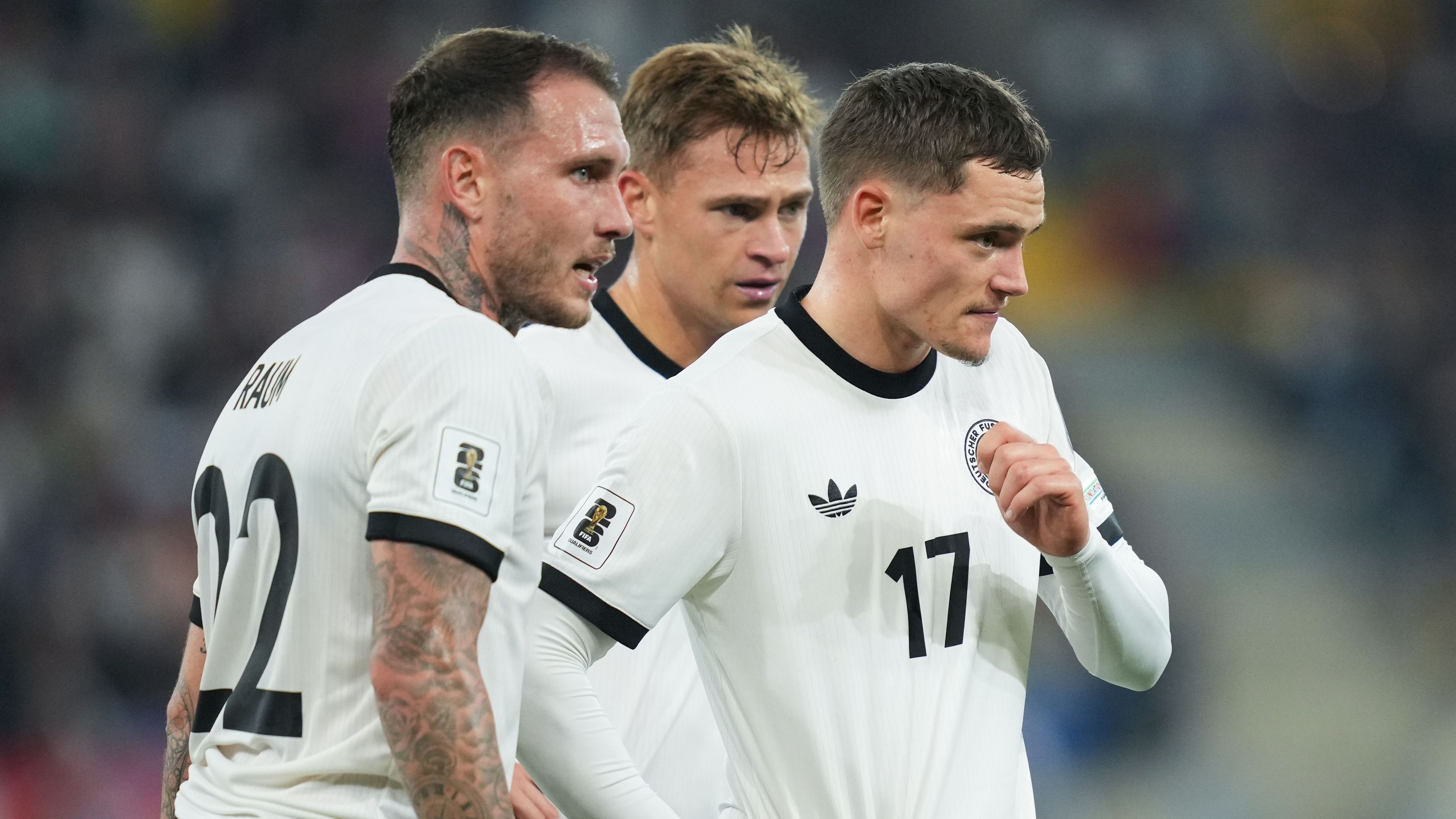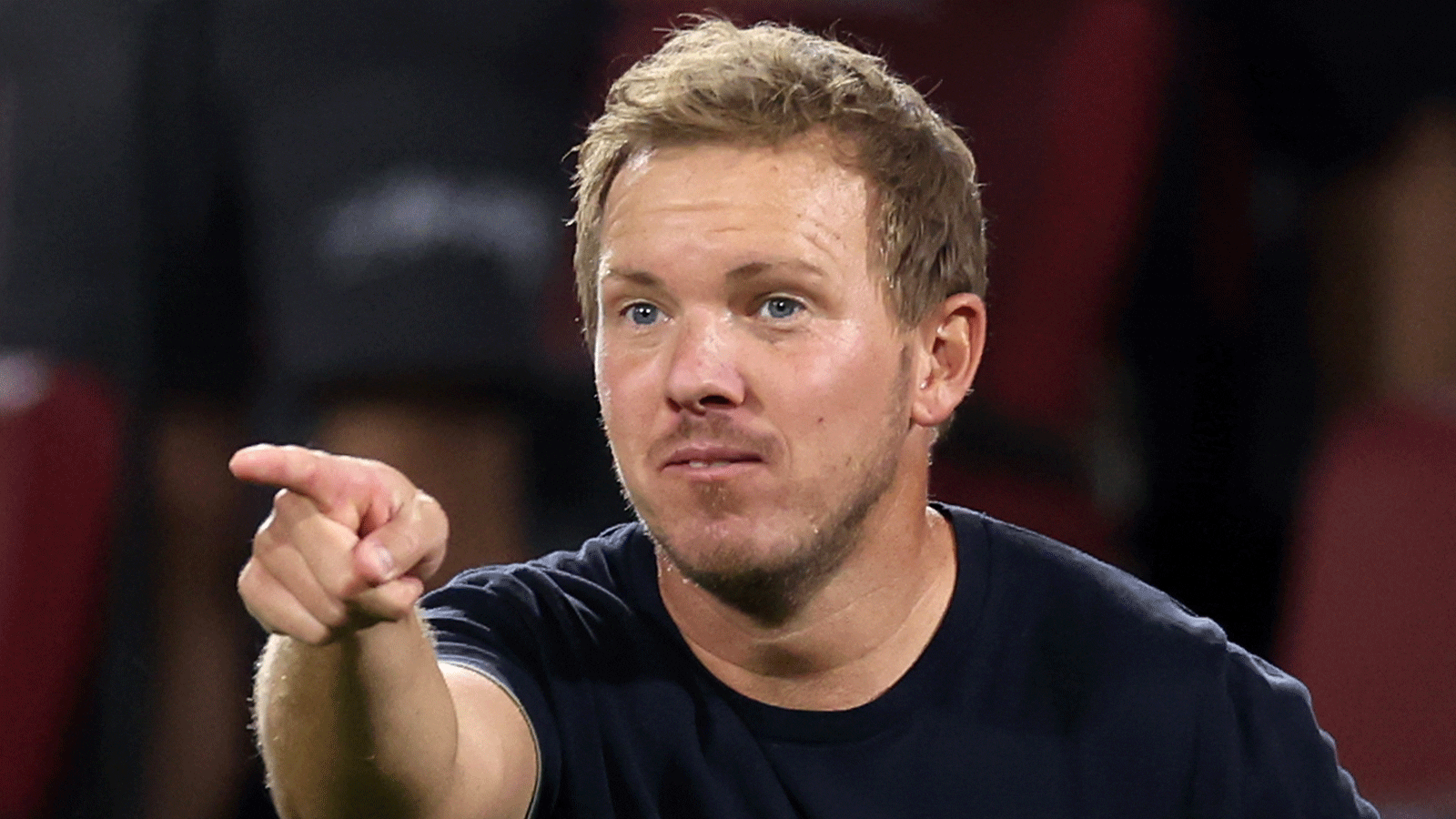


Julian Nagelsmann’s Apology Amid ‘Long Ball’ Tensions Heats Up World Cup Qualifiers
In the midst of escalating international soccer rivalries, Julian Nagelsmann, Germany’s head coach, has offered his sincere apologies to Northern Ireland after his critique of their tactics sparked widespread criticism prior to a pivotal World Cup qualifier in Belfast. Based on various news sources, Nagelsmann clarified that his comments on their direct playing methods were meant for strategic insight rather than offense, referencing Germany’s 3-1 victory in September and their reliance on long passes. He addressed the backlash by stating, “If my words were taken the wrong way, I am truly sorry.”
Preparing for an Intense Clash in Belfast
Stressing the Need for Solid Defense Against Distinct Tactics
The German coach has warned his players about the tough battle awaiting them at Windsor Park on Tuesday night, asserting, “We face a tough opponent, and everyone must give their all.” He stressed the importance of a strong defensive setup when dealing with Northern Ireland’s unconventional style, which often involves fierce competitions for second balls and repeated challenges across the field.
Insights from Past Games and Strategic Shifts
Pointing to Northern Ireland’s ability to ramp up pressure, as seen in their dominant 4-0 win over Luxembourg, Nagelsmann urged his team to be meticulous. He recommended, “It’s vital to keep tight defensive formations and close guarding to stop crosses and set-piece scenarios,” adding that his players have developed targeted plans to neutralize threats from opponent corners and free kicks.
Intense Competition in World Cup Qualifying Group A
Overview of Group Standings and Team Form
The upcoming match at Windsor Park carries significant weight in World Cup Qualifying Group A, with Germany, Northern Ireland, and Slovakia all level on six points following three matches. Germany holds the top spot due to goal difference after their impressive victory over Luxembourg on Saturday, while Michael O’Neill’s side has built momentum with a convincing 2-0 win against Slovakia that same day. The result of Tuesday’s encounter may determine which team gains a crucial edge moving forward.
Pushing for a Win and Securing Qualification
With Germany traveling to Belfast for the October 14 qualifier, Nagelsmann is emphasizing the need for laser-focused performance from his squad, advising them to aim for a meaningful victory over showy but ineffective plays. Earning three points would solidify Germany’s position at the top, greatly enhancing their chances for direct qualification to the 2026 World Cup.
Debate Over Julian Nagelsmann’s Remarks on Playing Styles
The competitive arena of global soccer often turns verbal slips into major disputes quicker than a swift goal. Julian Nagelsmann, leading Germany’s national team, stirred up a significant uproar with his observations about Northern Ireland’s approach before a vital World Cup Qualifier. By describing their method as dependent on “long ball” techniques, he provoked anger from fans and athletes, fueling lively conversations across social platforms and athletic discussions. This occurrence underscores the caution required by experienced managers when evaluating rivals, particularly during the lead-up to high-stakes events like World Cup qualifiers.
If you’re not acquainted with it, the “long ball” method entails teams propelling the ball forward rapidly to circumvent the enemy’s midfield, a common choice for sides favoring a straightforward approach. Nagelsmann’s statements came across as condescending, implying a lack of refinement in Northern Ireland’s gameplay. Terms such as “Julian Nagelsmann long ball controversy” soon gained popularity, illustrating how these comments can intensify rivalries in elite sports.
Analyzing the Widespread Criticism
Criticism erupted quickly and from multiple angles. Northern Ireland’s players and followers believed Nagelsmann’s critique diminished their effective strategies, which have enabled them to exceed expectations in worldwide tournaments. Figures like Northern Ireland’s captain Steven Davis shared their frustration, stressing that all teams’ methods warrant appreciation. This situation highlights the deep national identity linked to soccer squads, where a minor statement can feel like a slight against a nation’s sporting legacy.
In the tense environment of World Cup qualifiers, where each game holds enormous significance, these kinds of statements can heighten the drama. Those looking up “Nagelsmann Northern Ireland apology” were keen for the latest, as the issue risked eclipsing the match itself. It’s intriguing to observe how contemporary soccer intersects with media attention, transforming media sessions into risky territories for coaches.
Nagelsmann’s Clarification and Official Regret
Upon realizing the impact, Julian Nagelsmann made a formal statement of regret to calm the waters before things worsened. In his remarks, he explained that his intention was not to belittle Northern Ireland’s squad or their successes, reaffirming his admiration for all competitors in World Cup qualifiers. This action was viewed as a responsible choice, demonstrating how sports figures can grow from errors and promote positive interactions.
In soccer, saying sorry goes beyond fixing immediate issues; it can sway team spirit and how the public sees things. Nagelsmann’s fast response kept the controversy from overshadowing the game, letting both sides concentrate on playing. For those curious about “Julian Nagelsmann apologizes to Northern Ireland,” this moment emphasizes the value of taking responsibility in professional athletics.
How Media Coverage Escalated the Matter
News sources were instrumental in expanding the narrative, with reports and breakdowns examining Nagelsmann’s initial words in detail. This reporting not only sustained interest but also informed audiences about the finer points of soccer strategies, merging fun with useful knowledge. If you closely track international soccer, you’ll recognize how these stories can mold perceptions around competitions like World Cup qualifiers.
Key Takeaways and Strategies for Managing Media Statements in Athletics
Moving past the initial excitement, this event provides important takeaways for coaches, athletes, and supporters on handling public remarks. A major advantage is the chance for self-improvement; Nagelsmann’s act of contrition showed how admitting faults can boost a leader’s standing. In the world of sports, where statements are closely examined, mastering careful communication can ward off needless disputes.
Consider these practical strategies for dealing with comparable scenarios:
- Select phrasing carefully: Think about the setting and possible meanings of your words. For example, in World Cup qualifiers discussions, highlight your own team’s readiness instead of faulting others’ approaches.
- Act swiftly: When issues emerge, confront them directly to limit harm. Nagelsmann’s prompt apology exemplifies effective crisis handling.
- Gather input: Consult with colleagues or public relations specialists to assess statements beforehand. This helps steer clear of potentially provocative language.
- Encourage mutual respect: Focus on the game’s uplifting elements, such as shared esteem among teams, to foster a more cohesive sports environment.
These approaches apply to a range of situations, from amateur coaching to top-tier leagues, helping ensure soccer upholds principles of integrity and courtesy.
Examples of Comparable Controversies in Soccer
Throughout soccer’s past, there are numerous instances where comments resulted in retractions, providing detailed examples for review. Take, for instance, a previous World Cup preliminary where a manager’s critique of another team’s backline triggered similar outcry, eventually settled via negotiation. In another case, a renowned coach disparaged a squad’s aggressive play, leading to a reconciliatory action during the match to repair ties.
These examples reveal common threads: conflicts typically arise from tactical differences or cultural gaps, yet solutions can fortify the international soccer network. Exploring “long ball comments in football history” demonstrates how these incidents progress, offering guidance for upcoming engagements in World Cup qualifiers and more.
Personal Accounts and Insights from the Field
From direct experiences in athletics, numerous retired players and managers have recounted similar oversights. For example, an unnamed former international player described how an offhand comment about an opposing team’s plan almost disrupted a practice game, underlining the importance of understanding. Nagelsmann’s experience echoes this, reminding us that even elite coaches are fallible and can evolve through challenges.
Upon reflection, it’s evident that such occurrences help shape the protocols of global soccer. For enthusiasts and experts, keeping up with these developments maintains the dialogue around World Cup qualifiers as both captivating and instructive.
This discussion remains relevant, with queries for “Julian Nagelsmann Northern Ireland controversy” showing sustained curiosity. By delving into these elements, we’re not only revisiting incidents but also uncovering the intricate aspects of soccer.
The Controversial Remarks by Julian Nagelsmann
In the high-stakes world of international football, comments from managers can sometimes stir up unintended controversy, as seen with Julian Nagelsmann’s recent remarks about Northern Ireland’s playing style. Nagelsmann, the head coach of the German national team, referred to Northern Ireland’s tactics as relying heavily on “long ball” strategies ahead of their World Cup qualifier match. This phrase, often used to describe a direct and physical approach to football, was perceived as dismissive and disrespectful by many fans and players from Northern Ireland.
These “long ball” remarks quickly gained traction online, with keywords like “Julian Nagelsmann apology Northern Ireland” trending on search engines. The incident highlighted how managerial comments can influence public perception and team morale in World Cup qualifiers, emphasizing the need for careful communication in competitive sports.
Understanding the Context of the Comments
To grasp the full picture, it’s essential to look at the broader context of the World Cup qualifier. Northern Ireland has built a reputation for resilient, counter-attacking football, which sometimes involves long balls to bypass pressure. Nagelsmann’s words were interpreted as downplaying this style, potentially undermining the hard work of Northern Ireland’s players and coach. This situation underscores the cultural significance of football tactics and how they reflect a team’s identity.
Experts in football analysis often debate the effectiveness of long ball strategies versus possession-based play. In this case, Nagelsmann’s comments may have been an attempt to strategize publicly, but they backfired, drawing attention to issues like respect in international competitions.
Nagelsmann’s Official Apology
Following the backlash, Julian Nagelsmann issued a public apology, acknowledging that his “long ball” remarks were poorly worded and not meant to offend. In his statement, he emphasized his respect for Northern Ireland’s team and their contributions to the sport. This apology was covered extensively in sports news, with searches for “Julian Nagelsmann issues apology” spiking as fans sought details on the resolution.
Nagelsmann’s response demonstrated maturity, as he clarified his intentions and focused on the upcoming match. This event serves as a reminder that transparency and quick apologies can help mitigate damage in the fast-paced environment of World Cup qualifiers.
Key Elements of the Apology
In his apology, Nagelsmann highlighted several points:
- He admitted that his comments were taken out of context and did not reflect his true admiration for Northern Ireland’s resilience.
- He stressed the importance of fair play and mutual respect among nations in football.
- The apology was shared across social media and official channels, making it easily accessible for fans searching for updates on the incident.
This approach not only addressed the immediate controversy but also aligned with best practices for crisis management in sports, where timely responses can prevent escalation.
Reactions and Impact on the World Cup Qualifier
The apology elicited mixed reactions from Northern Ireland’s camp. While some players and fans appreciated the gesture, others felt it was overdue, pointing to the potential mental impact on their preparation for the qualifier. Keywords like “Northern Ireland World Cup qualifier controversy” became popular as media outlets analyzed how such incidents affect team dynamics.
In terms of the match itself, Germany’s performance was under scrutiny, with many wondering if the controversy influenced outcomes. Ultimately, this event showcased how off-field comments can add pressure to on-field results, making World Cup qualifiers even more intense.
First-Hand Experiences from Similar Incidents
Drawing from past events in international football, Nagelsmann’s situation isn’t unique. For instance, managers like Jose Mourinho have faced backlash for tactical criticisms, leading to public apologies. In one case study from the 2018 World Cup, a coach’s remarks about an opponent’s defense sparked a similar uproar, but an apology helped maintain focus on the game.
These first-hand experiences illustrate that while controversies are common, handling them well can strengthen a manager’s reputation. Nagelsmann’s case could serve as a learning opportunity for emerging coaches.
Benefits of Apologizing in Sports
Apologies like Nagelsmann’s offer several benefits in the sports world. They foster better relationships between teams, promote sportsmanship, and can even boost a manager’s image. For athletes and coaches, issuing a sincere apology demonstrates emotional intelligence, which is crucial in high-pressure environments like World Cup qualifiers.
Moreover, in the era of social media, a well-timed apology can reduce negative publicity and improve search engine rankings for related keywords, as audiences appreciate authenticity.
Practical Tips for Managers on Media Interactions
To avoid pitfalls like Nagelsmann’s, managers can follow these practical tips:
- Choose words carefully: Always consider how tactics might be perceived culturally.
- Engage proactively: Use pre-match interviews to highlight respect rather than differences.
- Monitor feedback: Keep an eye on social media trends to address issues early.
- Seek advice: Consult PR experts for guidance, especially before major events like World Cup qualifiers.
By implementing these strategies, managers can maintain a positive public profile and focus on what matters most: the game.
Case Studies of Apologies in International Football
Examining case studies provides deeper insights. For example, during the EURO 2020 qualifiers, a prominent coach apologized for comments about a rival’s fitness levels, leading to improved diplomatic relations. Similarly, Nagelsmann’s apology could pave the way for more collaborative interactions in future World Cup cycles.
These examples show that while apologies can’t erase mistakes, they can turn negative situations into opportunities for growth, enhancing the overall spirit of international football.









